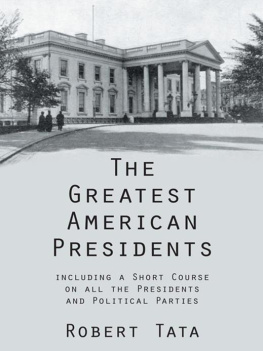1863: Lincoln announces his Reconstruction plan.
1864: Lincoln pocket-vetoes Wade-Davis bill.
1865: Civil War ends; Lincoln assassinated; Johnson becomes president; Freedmens Bureau established; Joint Committee on Reconstruction created; Thirteenth Amendment ratified; Ku Klux Klan founded.
18651866: Black Codes passed.
1866: Civil Rights Act passed.
1867: Tenure of Office Act passed.
18671868: Reconstruction Acts passed.
1868: Johnson impeached but acquitted; Fourteenth Amendment ratified.
1870: Fifteenth Amendment ratified.
18701871: Enforcement Acts passed.
1872: General Amnesty Act passed.
1875: Civil Rights Act passed.
1877: Hayes withdraws remaining troops from South.
1896: Plessy v. Ferguson decided.
The Civil War worked a revolution in the life of the American people in many respects more profound than did the American Revolution. During Reconstruction, which lasted from the surrender of the Confederate forces in 1865 to the removal of the last Union occupation troops in 1877, the South was the scene of bitter strife, as its status in the federal government and the plans for its rebuilding were debated. From Reconstruction emerged new patterns of government, economy, and society that transformed the South .
 FRAMING AND IMPLEMENTING A RECONSTRUCTION POLICY
FRAMING AND IMPLEMENTING A RECONSTRUCTION POLICY
The views among the political leaders who tried to formulate and carry out a program for the rehabilitation of the former Confederate states were so mixed that the American people were badly confused.
The Prostrate South
War always disfigures. And a civil war often scars the face of society so greatly that it is hardly recognizable. This was true of the South during Reconstruction. Confederate soldiers, returning home after the surrender of General Robert E. Lee, found destruction, poverty, and hopelessness all about them.
Economic Chaos
Throughout the former Confederacy, farmhouses, barns, and mills had been burned; bridges and railroad tracks had been destroyed; towns had been looted and their inhabitants driven out. Plantation owners had lost their slaves, and they could not afford the capital for agricultural equipment to replace slave labor. Business was at a near standstill.
Social Confusion
The war hadat least temporarilydestroyed the whole structure of Southern society. Aristocratic planters, shorn of their wealth and power, yielded reluctantly to the growing influence of bankers, merchants, and small farmers. The changing status of blacks, as they made the transition from slaves to wage earners, created serious social tensions between blacks and whites.
Political Uncertainty
The collapse of the Confederacy had stalled most political processes in the South. State and local governments had to be organized; the new state governments had to establish normal relations within the Union. In the nations capital and throughout the North, political leaders differed sharply over what should be done and how it should be done. There were bitter quarrels among the leaders of the dominant Republican party concerning the proper basis for political reconstruction.
Framing a Policy
The approaches of presidents Abraham Lincoln and Andrew Johnson on the one hand, and of Congress on the other, for the readmission of the former Confederate states to the Union were so opposed that a rift between the executive and legislative branches of the government soon occurred that was unprecedented in the nations history.
The Conquered Provinces Theory
Some members of Congress, including such influential Republican leaders as Senator Benjamin F. Wade of Ohio and Representative Thaddeus Stevens of Pennsylvania, argued that secession was an illegal act and that Southerners must pay a heavy penalty for having committed it. By having engaged in this crime, the Southern states had placed themselves outside the protection of the Constitution. They must now be treated as conquered provinces, which Congress had the constitutional power to govern.
Lincolns Ten Percent Plan
President Lincoln argued against the conquered provinces theory, although he knew it had support from important members of his own party. He claimed that the right to secede did not exist, and that the Southern states had never left the Union but had merely been out of their proper practical relation to it. (In 1869, the Supreme Court in Texas v. White upheld the position that the Union was constitutionally indestructible.) Lincoln was convinced that he should help the South quickly resume its former status within the Union. In December 1863, he presented a two-part plan for reconstruction. First, the plan pardoned all Southerners (except high Confederate officials and those who had left U.S. government or military service to aid the Confederacy) who would swear allegiance to the United States and accept all acts of Congress passed during the existing rebellion with reference to slaves. Second, it authorized the establishment of a new government, with representation in the national government, for any state if one-tenth of its qualified voters (as registered in 1860) would take the required loyalty oath.
The Wade-Davis Bill
Lincolns moderate plan ran into strong opposition among the congressional leaders of his own party. They feared that the president would let the South off too easily and that former Confederate officials would return immediately to political power in their states. In July 1864, Congress passed the stringent Wade-Davis bill. Named after its sponsors, Senator Benjamin F. Wade of Ohio and Representative H. Winter Davis of Maryland, it provided that a majority of white male citizens had to take a loyalty oath before a civil government could be organized in a seceded state. It also excluded from the electorate of such states former Confederate officeholders and military personnel who had voluntarily borne arms against the United States. Lincoln defeated the bill with a pocket veto; that is, he failed to sign it into law before the adjournment of Congress. Wade and Davis consequently accused him of dictatorial usurpation.















 FRAMING AND IMPLEMENTING A RECONSTRUCTION POLICY
FRAMING AND IMPLEMENTING A RECONSTRUCTION POLICY